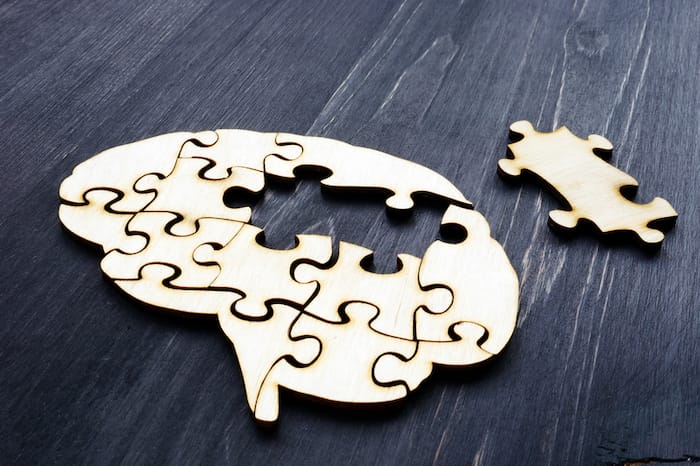- Calls to this hotline are currently being directed to Within Health, Fay or Eating Disorder Solutions
- Representatives are standing by 24/7 to help answer your questions
- All calls are confidential and HIPAA compliant
- There is no obligation or cost to call
- Eating Disorder Hope does not receive any commissions or fees dependent upon which provider you select
- Additional treatment providers are located on our directory or samhsa.gov
Anorexia and the Brain: What Do We Know?
On the outside, someone struggling with anorexia may appear to be well versed in nutrition.
A person who has anorexia may be more knowledgeable about nutrition labels, food facts, portion sizes, calories, and much more than any educated nutritionist or dietitian.
This can create a disillusioned perspective as many may assume that a person with anorexia is simply “disciplined”, “controlled”, and able to take charge of their nutrition and health. However, this could not be farther from the truth, especially when anorexia is a very psychological disease.

Abnormalities in the Brain
Research has shown us that severe malnutrition, as occurs in anorexia, will influence abnormalities in the brain that can disrupt regions that control appetite and eating behaviors [1].
While individuals typically respond to normal hunger cues by eating, people with anorexia can override these signals and essentially ignore the brain’s mechanism for survival. Disruptions in the brain of an anorexic likely explain how starvation can be practiced to a point of fatality [1].
The Brain-Based Illness
These are not merely habits of a person “disciplined” in nutrition or dieting. Anorexia is in fact a brain-based illness in which sufferers are subject to powerful physiological mechanisms.
Understanding this can also be helpful to the loved ones of a person suffering from anorexia. The habits of an anorexic can be painful to observe, and you have likely felt helpless as an outsider, unsure of what to do or how to help.
Re-Nourishing the Body
Despite your best efforts, you may feel as though there is not much that can be done to help this person you love to overcome the detrimental disease that is anorexia.
Fortunately, there is much that can be done to encourage recovery, and it starts with the basics: nutrition and re-nourishing the body. Even the most powerful therapeutic techniques can prove ineffective to a person whose brain is malnourished.
Nourishing Your Brain
Getting the body to a state of adequate nourishment is one of the most essential first steps of recovery from anorexia, in addition to addressing any medical complications that may have resulted from this fatal disease.
As one recovering from anorexia, this can be such an excruciating process. All that you have set to control and contain in your eating disorder may seem to unravel before you, and that can cause you to feel as though you are spiraling out of control.
It is crucial to understand that you are going up against your own biology and disrupted circuits in your brain, which have been made worse by malnutrition and starvation. These are the forces that will fight against you when you begin re-feeding, causing you to believe that your most irrational fears are in fact truth.
Nutrition Facts Won’t Lie
The basics of nutrition are unwavering. Our bodies need adequate amounts of fat, protein, and carbohydrates to function normally and properly. The beauty of our human bodies is our resiliency. Even in the face of starvation, there is hope for a person suffering from anorexia to recover and live free from this burden.
Research has also found that brain abnormalities are indeed reversible in individuals with anorexia after long-term recovery [2], giving way to hope that the body can be made whole again. In order to get to this place, help MUST be sought, and an action step is taken to reach out for help.

Getting Professional Help
This can mean confiding in someone you trust or look up to or finding an eating disorder specialist. Professional interventions are a necessary and crucial component to interfering with the deadly behaviors that are practiced in the anorexic person.
Learning how to nourish your body adequately is something that will happen gradually with time and patience. Remember, it is not simply about the food or “just eating”, but truly giving your body the nourishment it needs to respond properly to the mechanisms that have always been there.
Having the support and help from friends, family, and loved ones will be an instrumental part of your recovery journey and story. Know that there is hope, that your body can heal, and that you are worthy of being nourished and loved.
References:
-
- Kaye, Walter., et al. Is Anorexia Nervosa an Eating Disorder? How Neurobiology can help us understand the puzzling eating symptoms of anorexia nervosa. http://eatingdisorders.ucsd.edu/research/biocorrelates/PDFs/Kaye2010NeurobiologyofAN.pdf Accessed 29 Jan 2015.
- Wagner, Angela, et al. Normal Brian Tissue Volumes after Long-Term Recovery in Anorexia and Bulimia Nervosa. Biol Psychiatry 2006; 59:291-293
Articles on Anorexia
- Instant (Chemical) Messenger: Anorexia and the Chemical Communication of the Brain
- Understanding Anorexia Treatment: What to Expect During the First Week in Residential Treatment
- Anorexia and Emotions: A Treatment Approach From the Inside Out
- Anorexia Recovery and Overcoming Physical Side Effects of an Eating Disorder
- Common Signs & Symptoms of Anorexia
- Does Anorexia Impair One’s Ability to Relate Socially?
- Anorexia and Infertility: Causation or Correlation
- A Whopping 95% of all Diets Fail: Is it Anorexia in the Making?
- Anorexia & BMI: Is Weight the Sole Determiner of Anorexia?
- Dieting and Recovery from Anorexia Nervosa – Do They Mix?

